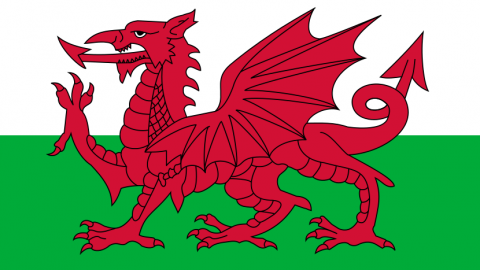Situated in northwest Europe, comprising the island of Great Britain and the countries of Northern Ireland, Wales, Scotland and England.
Once the largest empire in history that encompassed almost a quarter of the world’s land surface. A sovereign state with a constitutional monarchy consisting of four countries: England, Northern Ireland, Scotland and Wales, governed by a parliamentary system with its seat of government in London, the capital.
The Kingdom of Great Britain was created by the political union of the Kingdom of England (which included Wales) and the Kingdom of Scotland on 1 May 1707. Almost a century later, the Kingdom of Ireland, merged with the Kingdom of Great Britain to form the United Kingdom. In 1927, the formal name of the UK was changed to its current name, the United Kingdom of Great Britain and Northern Ireland.
It was the world’s first industrialised country and the world’s foremost power during the 19th and early 20th centuries. The UK-led Industrial Revolution transformed the country and fueled the growing British Empire, with an initial concentration on heavy industries such as shipbuilding, coal mining, steel production, and textiles.
Post-war years saw the establishment of the Welfare State, including he world’s first and most comprehensive public health services. Changes in government policy also brought people from all over the Commonwealth to create a multiethnic Britain.
British influence can still be observed in the language, culture and legal systems of many of its former colonies, Canada, the eastern United States, countries in East Africa, India, and most of Australasia.
The UK‘s most notable alliance is its “Special Relationship” with the United States. Britain’s close allies include the European Union and NATO members, Commonwealth nations and others. The United Kingdom was one of the 12 founding members of the European Union at its launch in 1992 with the signing of the Maastricht Treaty but chose not to join the euro at the currency’s launch.
It is a recognised nuclear weapons state and has the third-highest defence spending in the world. The British Armed Forces are charged with protecting the United Kingdom and its overseas territories, promoting the United Kingdom‘s global security interests, and supporting international peacekeeping efforts.
Service industries play an increasingly large part in the UK’s economy, as does tourism. The service sector is dominated by financial services, especially in banking and insurance. London is the world’s largest financial centre, it has the largest concentration of foreign bank branches in the world. The creative industries are strong and recognised, the BBC produces and sells programming all over the world, art, film, music and literature are well supported by the government to promote culture, museums and art galleries are free.
Tourism is very important to the British economy, ranked as the sixth major tourist destination in the world. London is the most visited city in the world, ahead of Bangkok and Paris.

England
With the capital London, and a long history known the world over, England sets itself apart from the rest of Europe, wanting to always be distinctly different.

Northern Ireland
Occupying most of the northern part of the island of Ireland, Northern Ireland is a state of the UK, Belfast is its capital.
Northern Ireland Facts
Discover Northern Ireland
Northern Ireland Tourism
NOI Office

Scotland
A country of the United Kingdom, occupying the northern part of Great Britain.
Joe Journeys – Edinburgh
Scotland Facts
Visit Scotland
Scotland.com
Scotland Government

Wales
A principality and state in the southwest of Great Britain. where Cardiff is the capital city.
Wales Facts
Visit Wales
Holidays in Wales
Travel Wales
Castles of Wales
National Assembly Wales
